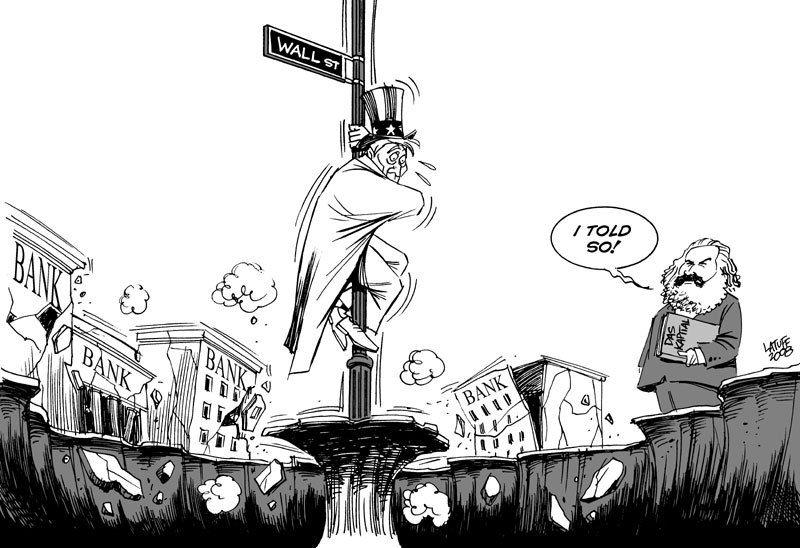by RICHARD D. WOLFF

The capitalist economic system has always had a big problem with politics in societies with universal suffrage. Anticipating that, most capitalists opposed and long resisted extending suffrage beyond the rich who possessed capital. Only mass pressures from below forced repeated extensions of voting rights until universal suffrage was achieved—at least legally. To this day, capitalists develop and apply all sorts of legal and illegal mechanisms to limit and constrain suffrage. Among those committed to conserving capitalism, fear of universal suffrage runs deep. Trump and his Republicans exemplify and act on that fear as the 2020 election looms.
The problem arises from capitalism’s basic nature. The capitalists who own and operate business enterprises—employers as a group—comprise a small social minority. In contrast, employees and their families are the social majority. The employer minority clearly dominates the micro-economy inside each enterprise. In capitalist corporations, the major shareholders and the board of directors they select make all the key decisions including distribution of the enterprise’s net revenues.
Their decisions allocate large portions of those net revenues to themselves as shareholders’ dividends and top managers’ executive pay packages. Their incomes and wealth thus accumulate faster than the social averages. In privately held capitalist enterprises their owners and top managers behave similarly and enjoy a similar set of privileges. Unequally distributed income and wealth in modern societies flow chiefly from the internal organization of capitalist enterprises. The owners and their top managers then use their disproportionate wealth to shape and control the macro-economy and the politics interwoven with it.
However, universal suffrage makes it possible for employees to undo capitalism’s underlying economic inequalities by political means when, for example, majorities win elections. Employees can elect politicians whose legislative, executive, and judicial decisions effectively reverse capitalism’s economic results. Tax, minimum wage, and government spending laws can redistribute income and wealth in many different ways. If redistribution is not how majorities choose to end unacceptable levels of inequality, they can take other steps. Majorities might, for example, vote to transition enterprises’ internal organizations from capitalist hierarchies to democratic cooperatives. Enterprises’ net revenues would then be distributed not by the minorities atop capitalist hierarchies but instead by democratic decisions of all employees, each with one vote. The multiple levels of inequality typical of capitalism would disappear.
News Click for more
